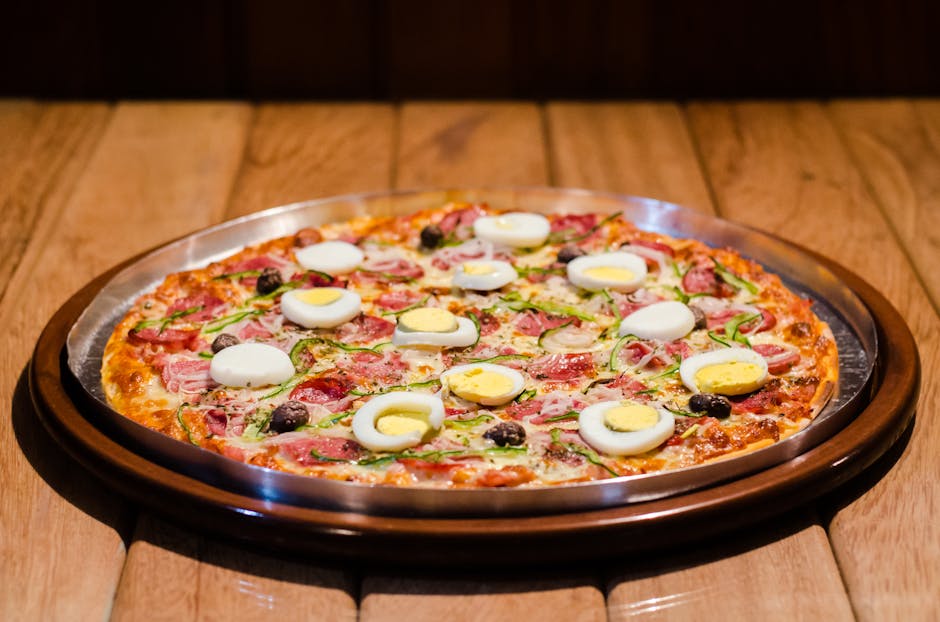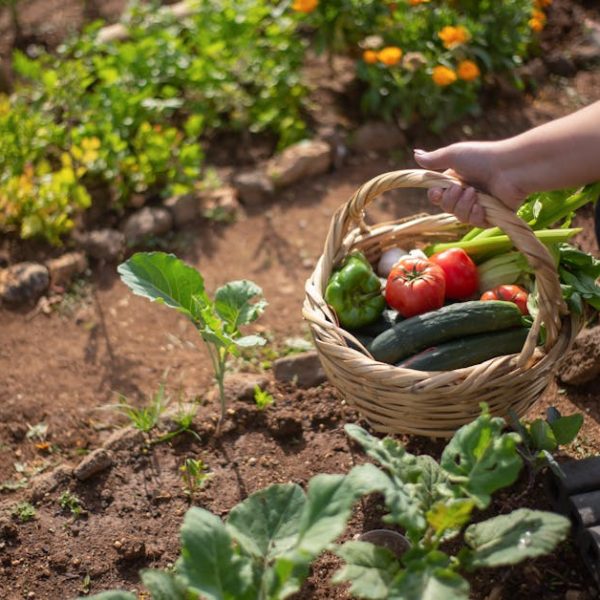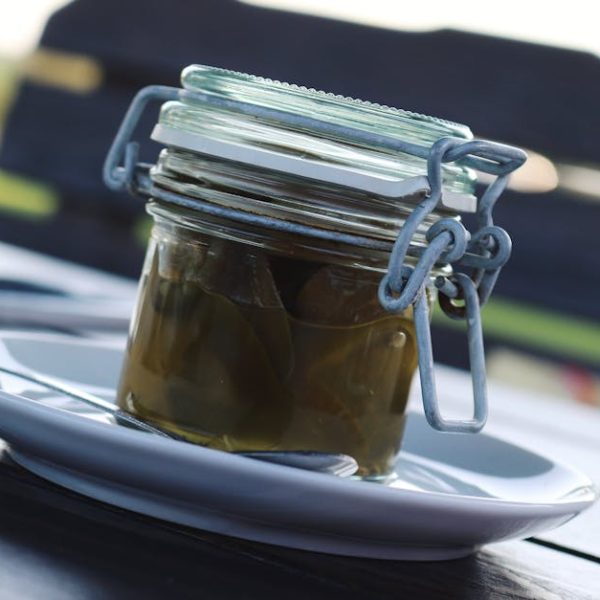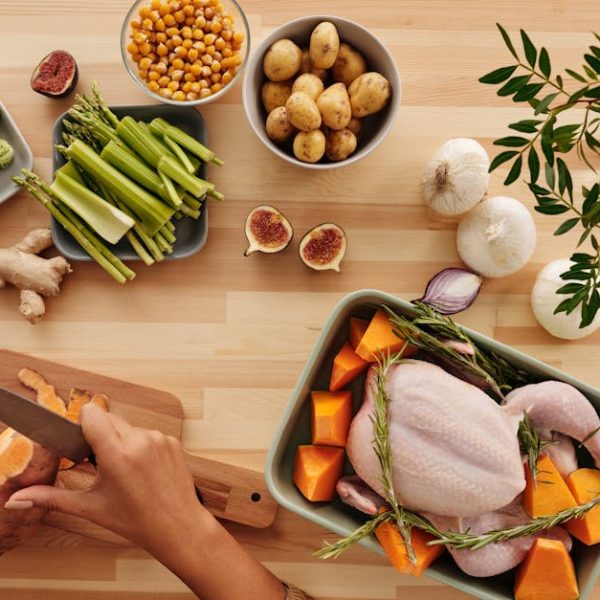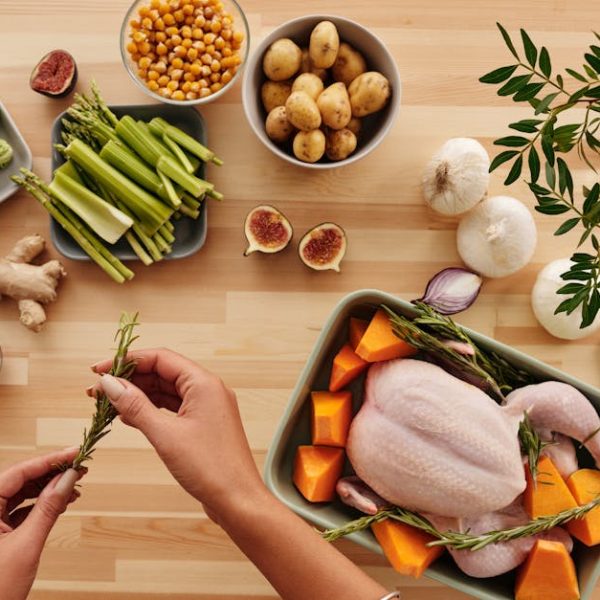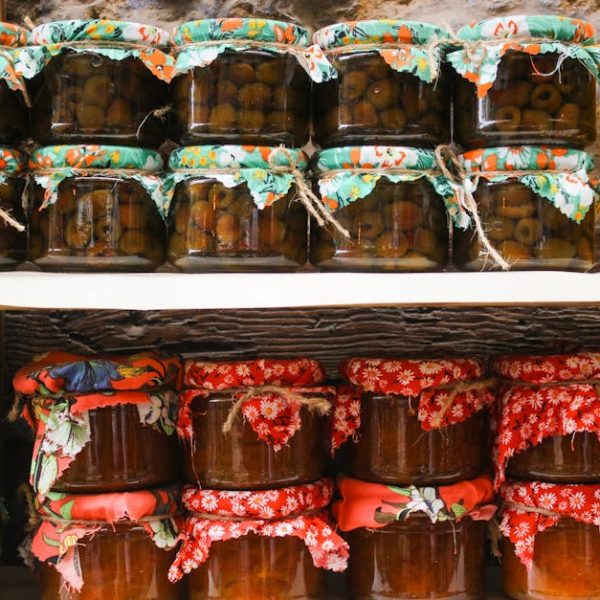Pickling eggs is not just an ancient culinary technique to preserve this protein-rich food. This process brings a delightful twist of flavor, enhancing the usual taste of eggs to a tangy, savory treat. It’s a fantastic way to extend the longevity of eggs, making them a handy and delicious snack.
What do you need to pickle eggs? Your grocery list should include fresh eggs, salt, spices, and the key player – vinegar. Vinegar’s acidity is responsible for providing that unique piquancy while preserving your eggs.
The pickling process involves boiling the eggs, peeling off their shells, and immersing them in a solution made of vinegar, salt, and spices until they absorb the flavors. Eating pickled eggs needs to be done with care – they should be consumed within three to four months and kept refrigerated for safety.
Pro tip: Choosing the right vinegar affects the taste of your pickled eggs. Apple cider vinegar imparts a mellow, fruity tang while white vinegar results in a cleaner, sharper flavor.
Tip & Recipe 1: Classic Vinegar Pickled Eggs
The classic vinegar-based method lets you enjoy pickled eggs in their simplest form. This recipe is all about letting the vinegar do its magic – infusing the eggs with its distinctive tanginess. Start with boiled eggs and a vinegar solution, usually consisting of water, table salt, and distilled white vinegar, providing a firm and tangy pickled egg.
Keeping the eggs in the pickling solution is crucial. Patience ensures that the vinegar and spices penetrate deeply, making every bite packed with flavor.
When it comes to vinegar, apple cider vinegar gives a delicate tart flavor with a hint of sweetness, while malt vinegar provides a unique complex flavor. Distilled white vinegar, on the other hand, gives the eggs a straightforward, intense tangy flavor.
Tip & Recipe 2: Spicy Pickled Eggs Recipe
Adding a bit of heat to your pickled eggs can make snacking on them an exhilarating experience. This recipe introduces the combo of heat and tang using chili flakes or hot peppers alongside traditional pickling ingredients.
The key to an excellent spicy pickled egg is to maintain a balance. Too much spice can overpower the natural taste of eggs, and you may end up with just a fiery vinegar aftertaste. Adding beet juice to the recipe not only gives the eggs an attractive purple hue, but it also provides a delightfully subtle sweetness, taming down the heat.
Remember: The longer the eggs stay in the pickling solution, the more intense the flavors become. However, always store your pickled eggs in a cool, clean area and consume within a safe time frame to avoid bacterial growth.
Tip & Recipe 3: Beet-Pickled Eggs Recipe
The striking visual appeal of beet-pickled eggs is surpassed only by their unique flavor. Incorporating beet juice into your pickling solution results in stunning pink or purple eggs that taste as fascinating as they look.
For this DIY venture, you need beet juice – from canned or fresh beets – cider vinegar, sugar, and your usual pickling spices. Sugar plays a critical role in this recipe, offsetting the vinegar’s tanginess and mellowing out the earthy taste of the beets.
However, beet-juice pickling isn’t for everyone, and it does come with its pros and cons:
| Pros | Cons |
|---|---|
| Stunning color | The earthiness of beets not enjoyed by some |
| Added nutrients from beets | Extra step of preparing beet juice |
| Sweetness counterbalances vinegar tang | Higher sugar content |
Tip & Recipe 4: Asian-Inspired Soy-Pickled Eggs Recipe
Take a trip to the far East with a simple twist to your pickling recipe. Asian-inspired soy-pickled eggs are a delicious way to include the rich, umami flavor of soy sauce in your pickling adventure.
In this recipe, the pickling solution comprises soy sauce, vinegar, water, and some sugar. Keep in mind that soy sauce is potent – dilute it suitably with water or mirin to keep the saltiness in check.
A fascinating aspect of this recipe is that the pickling time varies. The pickling effect is quicker and more pronounced due to soy sauce’s dark color and strong flavor. Ideally, small to medium eggs pickle perfectly in 2-3 days, while larger eggs need about a week.
Tip & Recipe 5: Pickled Quail Eggs Recipe
If you’re seeking a touch of elegance and novelty, pickled quail eggs are the ticket. Not only are these mini pickled delights adorable, but they also boast a rich, creamy taste that’s different from chicken eggs.
Sourcing quail eggs might be trickier than finding chicken eggs, but it’s worth the effort. You also need to be more delicate when peeling quail eggs because they’re smaller and more fragile.
Comparing quail eggs to chicken eggs, you will discover some notable differences:
| Quail Eggs | Chicken Eggs |
|---|---|
| Smaller in size | Larger and easier to handle |
| Richer taste | More neutral taste |
| Adorable and fancy | More common and casual |
| Higher cost | More affordable |
Tip & Recipe 6: Dill Pickle Eggs Recipe
If you love dill pickles, this fusion is sure to tantalize your palate. Dill pickle eggs infuse the crisp, bright flavor of dill pickles into your eggs, making them incredibly flavorful and satisfying.
To succeed in this recipe, you need fresh dill. The fresher the dill, the more aromatic and flavorful your pickled eggs will be. A helpful shortcut to this recipe is using the brine from your favorite jar of commercial pickles as a ready-to-use pickling solution.
No matter which pickling adventure you choose, remember that the key to excellent pickled eggs is patience. Whether you’re soaking them in a classic vinegar brine or a spicy, beet, soy, or dill-infused pickling solution, give your eggs ample time to soak in the flavors. Follow these tips and recipes, and you’ll never view eggs the same way again!
Key Takeaway:
- Pickling eggs is a preservation and flavor-enhancing process that can be done with essential ingredients like vinegar, salt, spices, and fresh eggs.
- The type of vinegar used in pickling significantly affects the taste of the final product.
- Various recipes can be attempted to introduce different flavor profiles, including classic vinegar, spicy, beet, soy, and dill pickle.
- Patience is key in this process to ensure that the flavors penetrate the eggs thoroughly.
- It’s essential to store and consume pickled eggs properly to maintain their quality and safety.
Continue your pickling adventures and savor the transformative power of this culinary technique. Just like in life, patience in pickling pays off with delicious flavors. Now, it’s your turn to experiment with the recipes shared and discover your personal favorite.
FAQs
Q: Can I pickle other types of food following the same process?
A: Yes, you can. Many fruits and vegetables get pickled using similar techniques. However, each food might have specific considerations in terms of pickling time and flavor combinations.
Q: How should I store my pickled eggs?
A: Pickled eggs need to be stored in a cool, clean area, ideally in the refrigerator. Always use clean utensils when handling them to avoid bacterial contamination.
Q: Can I use other spices in my pickling solution?
A: Absolutely. You can experiment with various spice combinations based on your preference. Commonly used spices include black pepper, bay leaves, garlic, onions, and mustard seeds.
Q: What happens if I don’t wait long enough before eating my pickled eggs?
A: The eggs might not have absorbed enough flavor. It’s recommended to give your eggs sufficient time in the pickling solution for a complete taste transformation.
Q: Can I reuse the pickling solution?
A: Yes, you can reuse your pickling solution, particularly if it’s still fresh and flavorful. Always make sure to keep it refrigerated and discard if you notice any foul smell or change in color.
We hope you found this article helpful. Don’t hesitate to share it with your friends and family who might be interested in pickling. Explore more posts on our website for more fascinating insights into the world of culinary adventures.
